The violent Jan. 6 insurrection at the U.S. Capitol, coupled with ongoing threats to election officials, election workers and lawmakers at all levels, represent unprecedented attacks on the foundations of our democracy. Certainly, President Donald Trump and others in his party who inspired the attacks must be held accountable through all available means. But accountability alone will not be nearly enough. Only meaningful reforms can undo the damage done — and establish a government that is truly representative of the people. The next real test of our democracy comes now. Read more
Related: 199 House Republicans have embraced anti-Semitism and violence. By Dana Milbank / Wash Post
Related: ‘Its Own Domestic Army’: How the G.O.P. Allied Itself With Militants. By David D. Kirkpatrick and Mike McIntire / NYT
Related: Expulsion is the only remedy: Insurrectionists in Congress must be rooted out. By Alan D. Blotcky and Seth D. Norrholm / Salon
Political / Social
 Jonathan Metzl on what’s driving polarization in a post-Trump America — and how to fix it. By Jonathan Capehart / Wash Post Podcast
Jonathan Metzl on what’s driving polarization in a post-Trump America — and how to fix it. By Jonathan Capehart / Wash Post Podcast
The “Dying of Whiteness” author talks about what he’s learning from new focus groups and why the 2019 Democratic victories in the Kentucky and Louisiana governor’s races “in the middle of Trumpism” provide a roadmap for bridging the divide. Listen here
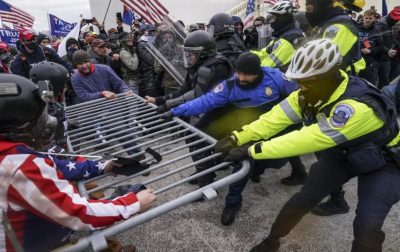 The Justice System Is Going Too Easy on the White Insurrectionists. By Elie Mystal / The Nation
The Justice System Is Going Too Easy on the White Insurrectionists. By Elie Mystal / The Nation
Every single person who breached the Capitol that day committed a crime. Every single person who breached the Capitol is, presumably, on video, captured by security cameras, committing that crime. At a minimum, every single person who breached the Capitol must be arrested, charged, and held accountable for that crime—just as they would be if they were Black. Read more
Related: Black Lives Matter condemns White supremacy in new ad ahead of Trump impeachment trial. By Nicquel Terry / CNN
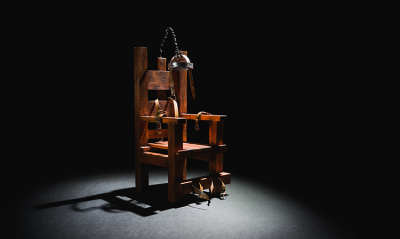 Texas and the Racist Machinery of Death. By Jordan Smith / The Intercept
Texas and the Racist Machinery of Death. By Jordan Smith / The Intercept
Texas has sent nearly 1,100 people to death row and has killed 570 since restarting executions in 1982. And the same problems that plagued the system before 1972 remain. Nearly 60 percent of those sent to death row in Texas have been Black or Latino. As the number of death sentences handed down each year decreases, the racial disparities have grown even more stark. At least two innocent people have been executed. Read more
Related: Alabama prepares to execute another Black man, under laws going back to slavery. By LZ Granderson / LA Times
 How the Patent and Trademark Office Can Promote Racial Justice. By Priti Krishtel / NYT
How the Patent and Trademark Office Can Promote Racial Justice. By Priti Krishtel / NYT
A division of the Department of Commerce, the Patent and Trademark Office grants patents (rewards in the form of time-limited monopolies issued by governments) and trademarks, as the Constitution directs, to “promote the Progress of Science and useful Arts.” Though the connection is less obvious than for agencies that deal with civil rights, poverty, health care or housing, there is a direct line between what the agency does and the systemic disenfranchisement of Black people. Read more
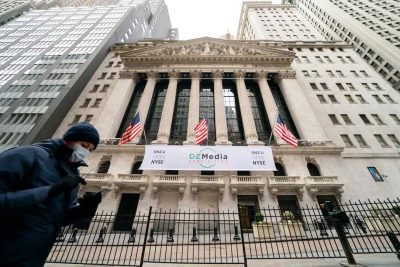 Black Americans can get ahead by enlisting the support of American capitalists. By Harold J. Logan / Wash Post
Black Americans can get ahead by enlisting the support of American capitalists. By Harold J. Logan / Wash Post
In our centuries-long struggle for freedom and justice, Black Americans have tried almost everything. We’ve cast votes and spent money to influence the political system. We’ve sued in the courts. We’ve appealed to the nation’s moral conscience. We’ve resorted to armed resistance. But there’s one thing we have not done: We have not found a way to enlist one of the most powerful forces in the United States to our cause. That force is the free enterprise system. Read more
 Black farmers unconvinced by Vilsack’s ‘root out’ racism vow. By Roxana Hegeman / AP and ABC News
Black farmers unconvinced by Vilsack’s ‘root out’ racism vow. By Roxana Hegeman / AP and ABC News
President Joe Biden’s nomination of Tom Vilsack to lead the Agriculture Department received a chilly reaction from many Black farmers who contend he didn’t do enough to help them the last time he had the job. Vilsack, a former Iowa governor who served eight years as agriculture secretary under President Barack Obama, has been trying to assure minority farming groups and the senators who will vote on his confirmation that he will work to “root out generations of systemic racism” in the agency. Read more
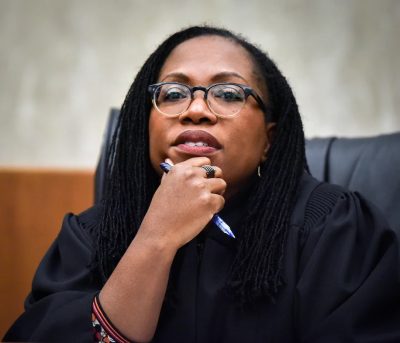 You probably haven’t heard of Judge Ketanji Brown Jackson. That’s going to change. By Ruth Marcus / Wash Post
You probably haven’t heard of Judge Ketanji Brown Jackson. That’s going to change. By Ruth Marcus / Wash Post
Unless you happen to practice law in the District of Columbia, you probably haven’t heard of Ketanji Brown Jackson. That may be about to change — in a big way. The 50-year-old federal district court judge is a leading contender to take the appeals court seat being vacated by attorney general-designate Merrick Garland. That could be just the first promotion, though. The federal appeals court in Washington is a frequent steppingstone to a Supreme Court nomination. So any choice for the U.S. Court of Appeals for the D.C. Circuit matters. Read more
 A Holistic View of Vaccine Hesitancy. By Charles M. Blow / NYT
A Holistic View of Vaccine Hesitancy. By Charles M. Blow / NYT
From the perspective of Black people, particularly many young ones, the government has demonstrated by deed that it is not to be trusted, that the health and welfare of Black people and Black bodies is not its concern. Indeed, the opposite may well be true. Read more
Related: A colorblind vaccine approach isn’t good enough. The US needs racial equity. By Keon L. Gilbert and Rashawn Ray / The Guardian
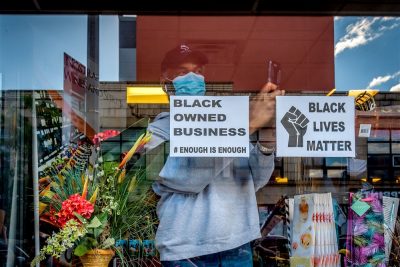 Why Black-owned businesses are struggling to stay afloat. By Dymond Green / CNBC
Why Black-owned businesses are struggling to stay afloat. By Dymond Green / CNBC
Covid-19 has exacerbated some of the issues facing the Black community. African American entrepreneurs have had to close their doors at more than twice the rate of their white counterparts. Black-owned businesses declined by 41 percent from February to April 2020, compared with a 17 percent decline among white-owned businesses. Read more
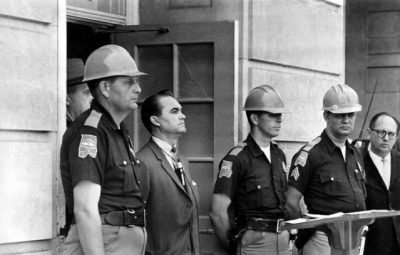 Alabama university removes Wallace name from building. By AP and ABC News.
Alabama university removes Wallace name from building. By AP and ABC News.
The University of Alabama at Birmingham has removed the name of four-term governor and presidential candidate George C. Wallace from a campus building over his support of racial segregation. A resolution unanimously approved by trustees Friday said Wallace rose to power by defending racial separation and stoking racial animosity. While noting Wallace’s eventual renouncement of racist policies, the resolution said his name remains a symbol of racial injustice for many. Read more
Historical / Cultural
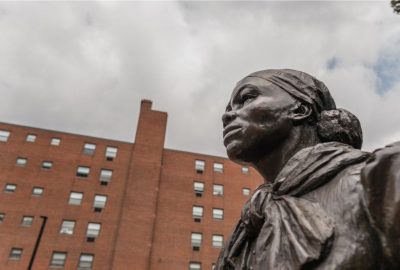 How Enslaved People Found A Pathway to Self-discovery. By Tyler Perry / AAIHS
How Enslaved People Found A Pathway to Self-discovery. By Tyler Perry / AAIHS
In 1837, Charles Ball published a memoir recounting his experience as one enslaved for forty years in the states of Maryland, Georgia, and South Carolina. His lengthy memoir disclosed a first-person perspective of enslaved people’s societies, remembering how they maneuvered within the antebellum South’s underground economies, the rituals they used for physical and psychological survival, and his own (multiple) attempts at self-emancipation. Shown is Harriet Tubman Statue in Boston’s South End neighborhood. Read more
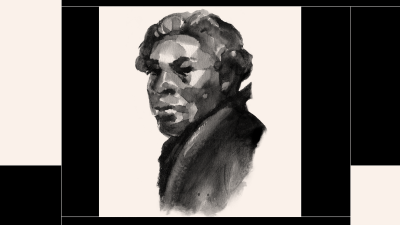 Prince Hall, American Revolutionary. By Danielle Allen / The Atlantic
Prince Hall, American Revolutionary. By Danielle Allen / The Atlantic
Prince Hall, a free African American and a contemporary of John Adams. From his formal acquisition of freedom, in 1770, until his death, in 1807, Hall helped forge an activist Black community in Boston while elevating the cause of abolition to new prominence. Read more
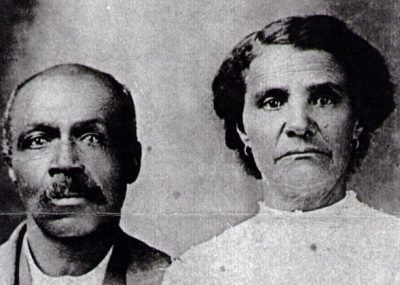 The Value of the Federal Writers’ Project Slave Narratives. By Clint Smith / The Atlantic
The Value of the Federal Writers’ Project Slave Narratives. By Clint Smith / The Atlantic
While many of these narratives vividly portray the horror of slavery—of families separated, of backs beaten, of bones crushed—embedded within them are stories of enslaved people dancing together on Saturday evenings as respite from their work; of people falling in love, creating pockets of time to see each other when the threat of violence momentarily ceased; of children skipping rocks in a creek or playing hide-and-seek amid towering oak trees, finding moments when the movement of their bodies was not governed by anything other than their own sense of wonder. These small moments—the sort that freedom allows us to take for granted—have stayed with me. Read more
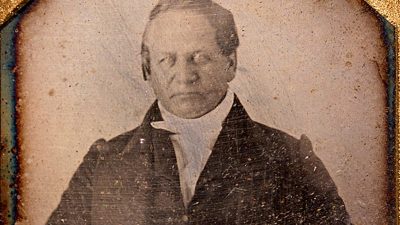 The complex history of Alexander Twilight, Middlebury’s first Black graduate. By Marina Affo / USA Today
The complex history of Alexander Twilight, Middlebury’s first Black graduate. By Marina Affo / USA Today
Tucked away on Franklin Street at Vermont’s Middlebury College sits a modest, red-bricked building bearing the name of Twilight Hall. It pays homage to the first student of African descent who graduated from Middlebury in 1823. Alexander Twilight was also the first Black person to obtain a bachelor’s degree across America – a piece of history Middlebury is proud to represent. Read more
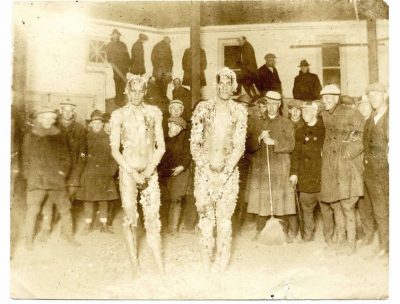 The hidden story of when two Black college students were tarred and feathered. By Karen Sieber / The Conversation
The hidden story of when two Black college students were tarred and feathered. By Karen Sieber / The Conversation
One cold April night in 1919, at around 2 a.m., a mob of 60 rowdy white students at the University of Maine surrounded the dorm room of Samuel and Roger Courtney in Hannibal Hamlin Hall. The mob planned to attack the two Black brothers from Boston in retaliation for what a newspaper article described at the time as their “domineering manner and ill temper.” The brothers were just two among what yearbooks show could not have been more than a dozen Black University of Maine students at the time. Read more
 Anna Deavere Smith on Forging Black Identity in 1968. By Anna Deavere Smith / The Atlantic
Anna Deavere Smith on Forging Black Identity in 1968. By Anna Deavere Smith / The Atlantic
In 1968, history found us at a small women’s college, forging our Black identity and empowering our defiance. I’d had white friends in high school, but I had not lived with them. I’d gone to only one slumber party at a white home, a sweet-16 sleepover, from which my father took me home at 10 p.m., because to him there was nothing sweet about me spending the night with a group of white girls. He and my mother didn’t allow me to hang out with anyone whose parents they didn’t know—and in Baltimore at that time, Negro parents didn’t know a lot of white parents. Read more
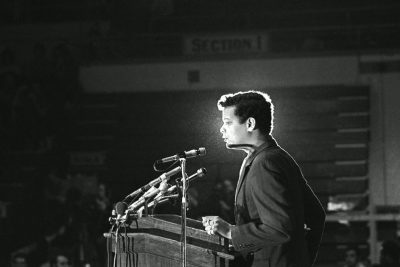 The Unfulfilled Promise of Julian Bond. By Gene Seymour / The New Republic
The Unfulfilled Promise of Julian Bond. By Gene Seymour / The New Republic
The lessons from his career are far from straightforward. Neither of the new books deals with the vexing question of how or why so many great expectations for Bond went unfulfilled. Even now, whenever his name comes up among those who were alive and politically aware during the twentieth century’s second half, they wonder how someone so telegenic, witty, and skilled in the mechanics of political life never ascended to higher office. Read more
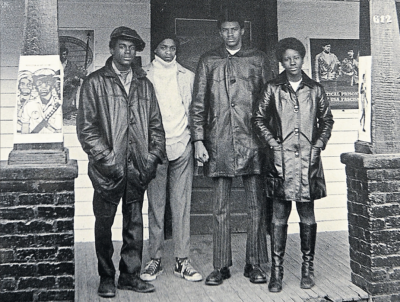 Why a shootout between Black Panthers and law enforcement 50 years ago matters today. By Paul Ringel / The Conversation
Why a shootout between Black Panthers and law enforcement 50 years ago matters today. By Paul Ringel / The Conversation
In the early hours of Feb. 10, 1971, police surrounded a property in High Point, North Carolina, where members of the Black Panther Party lived and worked. In the ensuing shootout, a Panther and a police officer were both wounded. The incident did not receive much national attention at the time – armed conflict of this type was relatively common during the late 1960s and early 1970s. But 50 years on, as the U.S. reckons with a year that saw militarized police confront Black Lives Matter protesters and fail to prevent an attack on the U.S. Capitol, I believe the circumstances of this shootout are relevant today. Read more
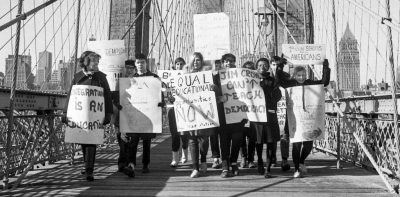 Fighting school segregation didn’t take place just in the South. By Ashley Farmer / The Conversation
Fighting school segregation didn’t take place just in the South. By Ashley Farmer / The Conversation
The Harlem 9’s fight serves as an important reminder that school desegregation protests were popular and successful in the North as well as in the South. It also provides insight into the prominent role Black women had in these struggles and the diverse range of strategies they deployed – from championing “open choice” to school boycotts – to help their children have access to equal education. Read more
 The bright light shining on America’s best Black artists has a fascinating backstory. By By Sebastian Smee / Wash Post
The bright light shining on America’s best Black artists has a fascinating backstory. By By Sebastian Smee / Wash Post
A new HBO documentary, “Black Art: In the Absence of Light,” begins with an account of this trailblazing exhibition, including footage from a contemporaneous interview with Driskell by Tom Brokaw, as well as others’ recollections and commentaries. The exhibition, held in 1976, was “Two Centuries of Black American Art.” Directed by Sam Pollard and debuting Tuesday, “Black Art” develops from this extraordinary — if belated — moment in the history of Black cultural visibility into a succinct, extremely watchable introduction to a bunch of powerful living artists who happen to be African American. Read more
 Mary Wilson, a founding member of ‘The Supremes,’ has died. By Joe Sutton and Hollie Silverman / CNN
Mary Wilson, a founding member of ‘The Supremes,’ has died. By Joe Sutton and Hollie Silverman / CNN
Wilson was a “trendsetter who broke down social, racial, and gender barriers,” Schwartz said in his statement. She began her career in Detroit in 1959 as a singer in what was then called “The Primettes.” They went on to become “The Supremes,” Motown’s most successful group of the 1960s, with 12 number one singles including “Where Did Our Love Go,” “Baby Love,” and “Stop! In the name of Love.” Read more
Related: Motown Records took flight in Detroit, producing sounds from the South. By Brian McCollum / USA Today
Sports
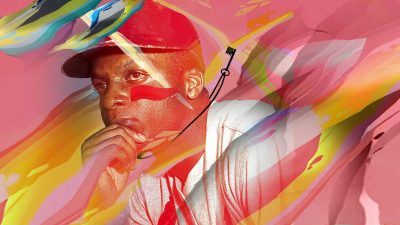 Curt Flood’s Fight Was About More Than Baseball. By Jemele Hill / The Atlantic
Curt Flood’s Fight Was About More Than Baseball. By Jemele Hill / The Atlantic
The year was 1969, and not only were the Phillies next-level terrible, but they had signed their first African American player only 12 years ago, in 1957. The team’s fan base also had a reputation for being hostile and racist. So it was no wonder that Curt Flood, a superstar center fielder for the St. Louis Cardinals, balked when he learned that he’d been traded to Philly. Flood wasted no time in registering his objection with MLB’s commissioner, Bowie Kuhn, writing, “I do not feel that I am a piece of property to be bought and sold irrespective of my wishes.” Read more
 Kevin Garnett Isn’t Sure His Generation Could Play in Today’s N.B.A. By David Marchese / NYT
Kevin Garnett Isn’t Sure His Generation Could Play in Today’s N.B.A. By David Marchese / NYT
Kevin Garnett changed professional basketball. During his career with the Minnesota Timberwolves, Boston Celtics and Brooklyn Nets, he helped the N.B.A. game evolve from one dominated by rigid positional play to today’s more fluid, diversely skilled style. His take: These guards changed the game. I don’t know if even the guards from 20 or 30 years ago could play in this time right here. It’s creative. It’s competitive. It’s saucy. You’ll get dropped! A [expletive] will cross you over and break your A.C.L. these days. The game is in a great place. Read more
 Only Venus Williams gets to decide when she leaves. By AP and USA Today
Only Venus Williams gets to decide when she leaves. By AP and USA Today
The questions about Venus Williams’ future have been accumulating for a while now, some subtle, some less so. About whether she’ll be back at a particular event. About whether she’ll stick around for the following season. About her passion for tennis. About her motivation at age 40. About other players who recently retired or were about to retire. Read more
 Why Super Bowl LV should be the Kansas City Chiefs’ last with that name — and might well be. By Simon Moya-Smith / NBC News
Why Super Bowl LV should be the Kansas City Chiefs’ last with that name — and might well be. By Simon Moya-Smith / NBC News
The Kansas City Chiefs — who played the Tampa Bay Buccaneers during Super Bowl LV on Sunday — are just delaying the inevitable. They will eventually drop their name. They will be forced to do away with the dehumanization and commodification of Native Americans that are their name and logo and beloved team traditions. It will happen. They’re just being stubborn right now and refusing to simply ride the massive wave of change occurring at this moment in this country. Read more
Site Information
Visit our home page for more articles, book/podcast and video favorites. And at the top of this page register your email to receive notification of new editions of Race Inquiry Digest. Click here for earlier Digests.
About Race Inquiry and Race Inquiry Digest. The Digest is published on Mondays and Thursdays.
Use the buttons below to share the Digest in an email, or post to your Facebook, Linkedin or Twitter accounts.
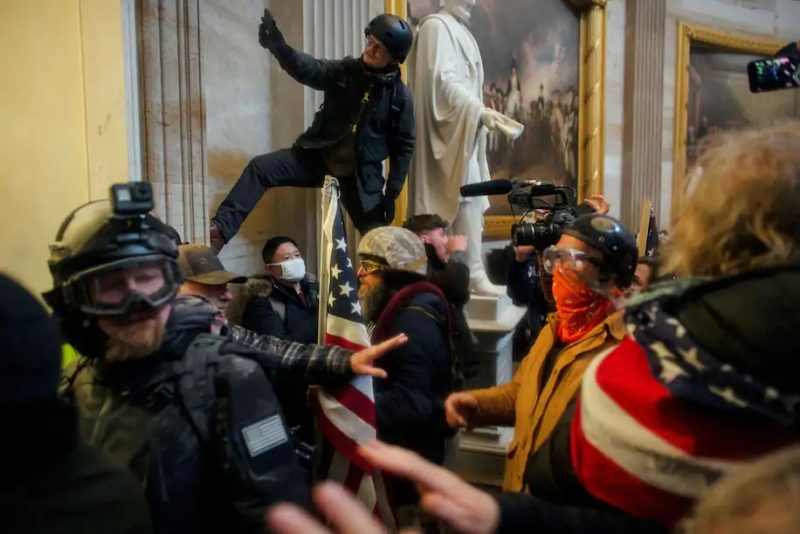 Our democracy faced a near-death experience. Here’s how to revive it. By Stacey Abrams / Wash Post
Our democracy faced a near-death experience. Here’s how to revive it. By Stacey Abrams / Wash Post Our democracy faced a near-death experience. Here’s how to revive it. By Stacey Abrams / Wash Post
Our democracy faced a near-death experience. Here’s how to revive it. By Stacey Abrams / Wash Post